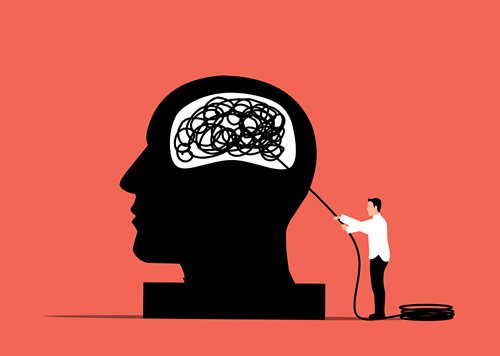
What is Cognitive behavioral therapy?
Cognitive behavioral therapy (CBT) is a directive therapy, which means the therapist leads the process, teaching patients how to develop effective ways of coping with a range of problems, including depression, anxiety, and panic disorders. “Cognitive behavioral therapy is based on the idea that the person is having difficulties because of faulty thinking and behaviors,” says Burton Hutto, a psychiatrist and director of the Crisis Stabilization Inpatient Unit at the University of North Carolina, Chapel Hill, School of Medicine.
These “cognitive errors” or distorted thinking often manifest in self-criticism or guilt. “You may catastrophize situations, tending to imagine the worst or overestimate the likelihood of something bad happening,” says Lynn Bufka, associate executive director for practice research and policy at the American Psychological Association (APA). “For example, you might think, ‘It’s all my fault,’ or ‘I never do anything right.’”
How CBT works
CBT, Hutto says, helps you identify and change those negative thought patterns and behaviors that are wreaking havoc on your well-being. “You try to get a more realistic view of what’s going on,” Bufka says. “Someone who is really anxious about the coronavirus might be convinced that they’re going to get it and are going to die. That’s a possibility, but it’s not necessarily true.” CBT also helps you recognize and accept events that are beyond your control.
The therapy is structured and focused: You set a plan with the therapist at the beginning of the session. “Because there’s an agenda on what you’re going to accomplish, it’s a shorter-term therapy that typically doesn’t last much more than six months,” Hutto says. Patients learn coping techniques during sessions, such as learning practical, more productive ways to respond to distressing or anxiety-provoking situations or feelings (deep breathing exercises, for example). “There’s also homework,” Hutto says. “For example, keeping track of thoughts, feelings, and situations, then discussing them in the following therapy session.”
By
Barbara Stepko, AARP
A Guide to Finding the Right Mental Health Therapist (aarp.org)
